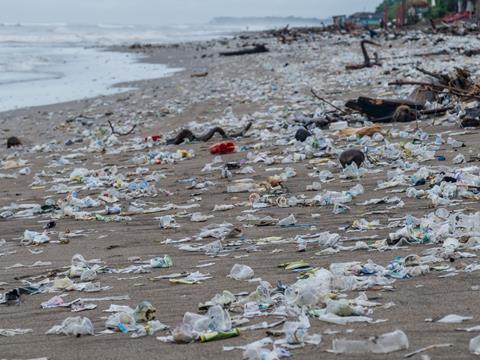
Prevented Ocean Plastic is working with the University of Georgia on a research project aiming to gain a better understanding of how inland litter ends up in the ocean – aiming to create a new tool for stakeholders and community leaders to combat the plastic waste affecting their local environments and identify its causes.
Prevented Ocean Plastic – supplied by Bantam Materials – is set to fund the research and offer support through its own Prevent Ocean Plastic Research Centre. Additionally, it will assist researchers by, for example, providing access to research locations.
The findings are expected to reveal more about the way heavy rainfall and other wet weather events can carry litter originating from further inland into the ocean, with studies estimating that 11 million metric tonnes of plastic find their way into the sea every year – a figure expected to triple by 2040.
It is also anticipated that the research will give stakeholders and community leaders insight into the types and volume of plastic entering their environments; how it is used, managed, and polluting the environment; and what alternatives may be available. Such information is thought to be useful in the overall reduction of ocean-bound plastics.
“We are on a mission to solve the problems of the recycling industry, by providing sustainable, long-term recycling supply solutions that reduce the need for virgin plastic, support collection, and clean up our natural environment,” said Raffi Schieir, director of Prevented Ocean Plastic and Bantam Materials. “The scale of the ocean plastic pollution problem is almost too big to comprehend.
“No one can solve this problem alone and it’s vital that businesses support academics and NGOs in the important work that they do. It’s vital that what we do is underpinned by research and we’re so pleased to be able to sponsor the University of Georgia’s research on this.”
Dr. Jenna Jambeck, Georgia Athletic Association Distinguished Professor of Environmental Engineering at University of Georgia College of Engineering, added: “For too long, communities have borne the burden of plastic pollution, from production to managing materials. Investigating not only what leaks out, but the input of plastics including what products and packaging are available is critical for community-led decision-making about how to optimize circularity.
“Recycling is one component of circularity, and data about the larger systems will help communities work in their local context to continue to reduce and prevent ocean plastic.”
“Inland litter pollution continues to burden communities, especially underserved communities,” concluded Dr. Felix Santiago-Collazo, Assistant Professor of Environmental Engineering. “Thus, creating a tool that could help this problem worldwide is the main focus of our research lab, Compound Inundation Team for Resilient Application (CITRA).
“The CITRA Lab motto is the nexus between research and practical solutions. Therefore, we are solving this litter issue by applied research that will be translated into practical solutions for the community. By identifying the litter hotspots after a rain event, stakeholders and community leaders can devise strategies to avoid litter accumulation at this location and prevent future litter from reaching a waterway, and eventually the ocean.”
Tesco and Keep Sea Blue recently undertook their own effort to keep 500 tonnes of discarded plastic out of the ocean by incorporating recycled plastics into its fresh fish packaging.
Furthermore, Ocean Legacy has unveiled what it claims to be the first commercially available plastic pellet in North America, apparently produced from high-grade, 100% post-consumer processed and recycled marine plastics.
SABIC and Scientex also collaborated to produce flexible packaging for a Malaysian noodles brand by chemically recycling ‘ocean-bound’ plastic waste into feedstock for the production of polypropylene.













No comments yet